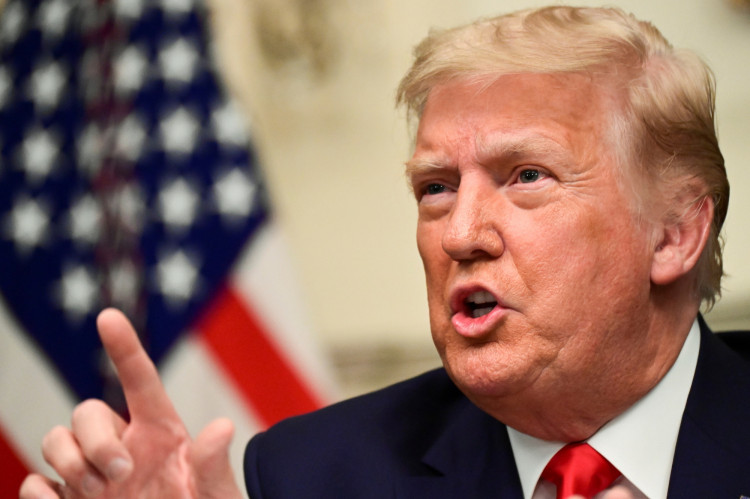Former President Donald Trump has vocally criticized the justice system's apparent discrepancy in handling classified document cases involving himself and President Joe Biden. At a National Rifle Association event, Trump contended that if Biden is absolved from charges related to his handling of classified documents, then fairness dictates that he should also be exempt from prosecution.
"If Biden is not going to be charged, that's up to them, you know, look, if he's not going to be charged, that's up to them, but then I should not be charged," Trump articulated, highlighting a perceived inconsistency in legal accountability.
The discourse around the handling of classified documents was reignited following Special Counsel Robert Hur's investigation into President Biden's mismanagement of classified materials. Despite Hur's report acknowledging Biden's "willful" retention of sensitive documents, it concluded without recommending charges, citing Biden's cooperation and the impracticality of securing a conviction. Trump seized on this outcome, contrasting it with the 40 charges he faces for allegedly mishandling classified records and attempting to obstruct their retrieval by the government.
Trump's charges stem from the FBI's discovery of classified documents at his Mar-a-Lago residence, some of which purportedly contained sensitive national defense information. The former president has pleaded not guilty, with his trial scheduled for May 2024. In light of Hur's report on Biden, Trump has intensified his rhetoric, suggesting a double standard and labeling the proceedings against him as "selective prosecution" and "unconstitutional."
Trump's assertion taps into broader concerns about the impartiality of justice, especially when it involves high-profile political figures. "If Special Counsel Jack Smith wants to do good for our Country, and help to unify it, he should drop all Litigation against Joe Biden's Political Opponent, ME, and let our Country HEAL," Trump stated on social media platforms, framing the legal actions against him as politically motivated and detrimental to national unity.
The juxtaposition of these two cases has stirred significant public and political discourse, reflecting deep divisions on issues of accountability and transparency. Trump's legal team and supporters argue that the former president's actions, while perhaps unorthodox, do not rise to the level of criminality, especially in light of the leniency shown towards Biden.
Critics, however, maintain that the cases are not directly comparable, emphasizing differences in the nature of the documents involved, the circumstances of their retention, and the individuals' responses to government inquiries, as reported by Newsweek. They argue that Trump's aggressive posture and allegations of obstruction distinguish his case from Biden's more cooperative approach.
As these legal dramas unfold, they not only shape the legal precedents concerning the handling of classified information but also influence the political landscape, especially with the looming 2024 presidential election. The outcome of Trump's case, in particular, could have far-reaching implications for his political future and the broader discourse on justice and accountability in America's political elite.






